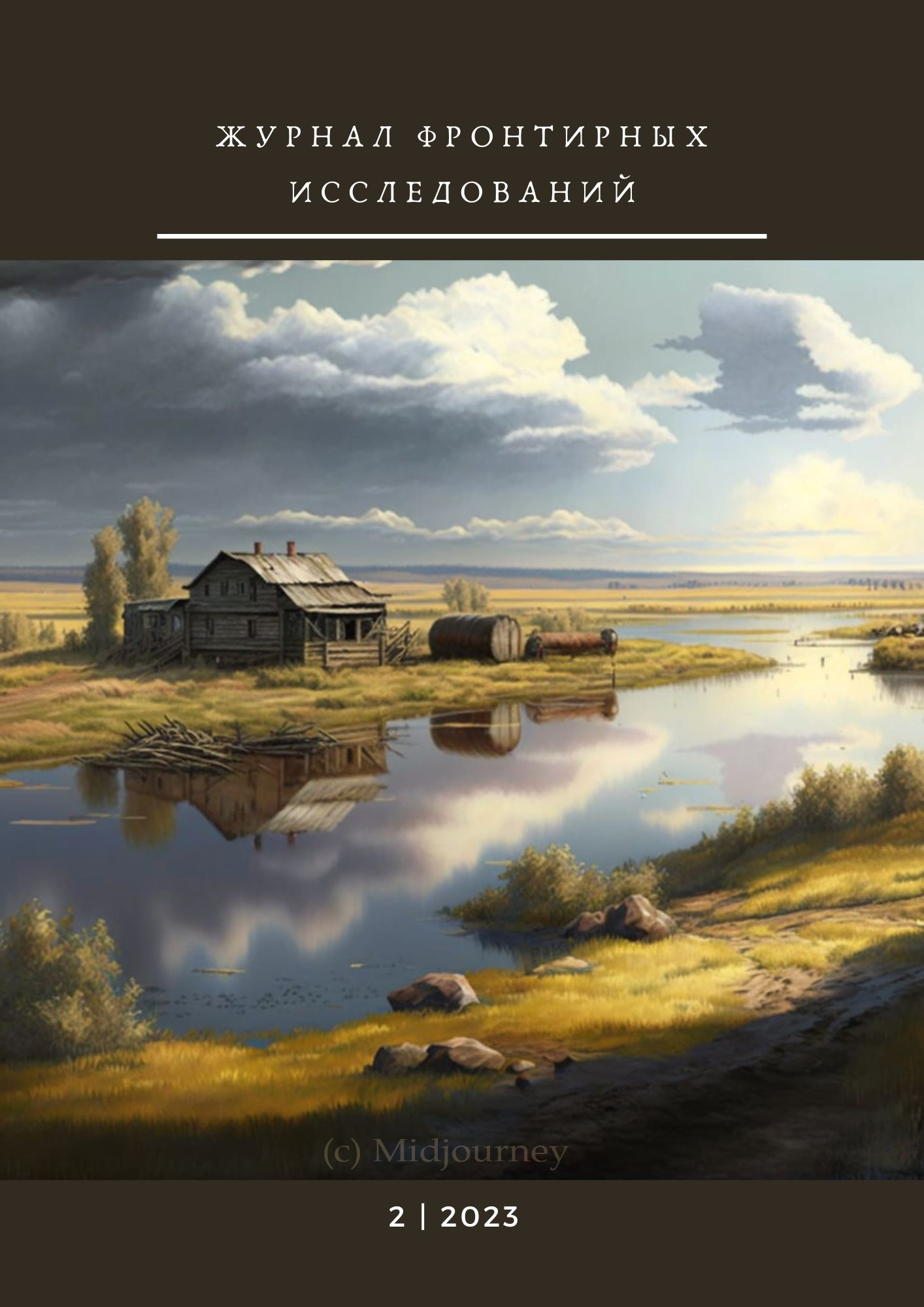Abstract
The concept of geopolitics has become a subject for research in a number of scientific disciplines, including literary studies with a special focus on travelogue, which is the most multipresentative genre of travel writing. Travelogue, being a literary genre, the thematic dominant of which highlights the aspect of mobility, represents numerous geographical locations through the prism of geopolitics. Countries, territories, and regions, may acquire associative changes in the context of historically-political shifts.
The present article focuses on the common political influences on the Siberian chronotope reflected in the contemporary Latvian and American travel narratives. It reveals not just the travellers’ subjective receptions of the place, but also indicates numerous political influences, which created a stereotypical image of Siberia as a place of marginality, forced power and exile.
After considering and analysing the Siberian chronotope through the comparative perspective, it becomes obvious that American travellers tend to perceive this region basing on their general knowledge of historical processes and on the established stereotypes, while Latvian travellers trace a piece of their own history in Siberia, where hundreds of Latvians suffered repressions in the late 1930s under the influence of the Soviet regime.
References
Abele, I. (2005). To the East from the Sun and to the North from the Earth. Diaries and travelogues. Atena. (In Latvian).
Bakhtin, M. M. (1982). The dialogic imagination: four essays. University of Texas Press.
Bendixen, A., & Hamera, J. (2009). The Cambridge companion to American travel writing. Cambridge University Press. https://doi.org/10.1017/CCOL9780521861090
Berensmeyer, I., & Ehland, C. (2012). Perspectives on Mobility. Rodopi. https://doi.org/10.1163/9789401209649
Burima, M. (2008a). The 1960s and 1970s: Transformations of the Latvian Literary Compass. In Back to Baltic Memory: Lost and Found in Literature 1940-1968 (pp. 249–260). Literatūras, folkloras un mākslas institūts.
Burima, M. (2008b). The mental topochrone of Latgale in the recent Latvian literature. In Latgale as a culture boderzone (pp. 246–253). Daugavpils University’s Academic Publishers “Saule”. (In Latvian).
Burima, M. (2008c). Version about a version. https://satori.lv/article/versija-par-versiju (In Latvian)
Burima, M. (2014). Travelogues in Latvian Literature (late 20th – early 21st century): Deconstruction and Reconstruction of Mental Borders. The Proceedings of the 1st SWS International Multidisciplinary Scientific Conference on Social Sciences and Arts SGEM 2014, 1, 283–290. https://doi.org/10.5593/sgemsocial2014/B31/S8.037
Burima, M. (2016). Orientalism, otherness, and the Soviet empire: Travelogues by Latvian writers of the Soviet period. Journal of Baltic Studies, 47(1), 65–75. https://doi.org/10.1080/01629778.2015.1103511
Cresswell, T. (2011). Mobilities I: Catching up. Progress in Human Geography, 35(4), 550–558. https://doi.org/10.1177/0309132510383348
Dima, A. (1977). Principles of comparative literary studies. Progress. (In Russian).
Downs, R. M., & Stea, D. (Eds.). (1973). Image and environment: Cognitive mapping and spatial behavior. Transaction Publishers.
Flint, C. (2022). Introduction to geopolitics. Routledge.
Frazier, I. (2011). Travels in Siberia. Picador.
Gudkova, E. F. (2007). The chronotope of Siberian in Russian classical literature of 18th-19th centuries. http://guuu7.narod.ru/HS.htm (In Russian)
Hart, J. L. (2021). Violence and Movement: Conflict, Genocide and the Darker Side of ‘Travel.’ Interlitteraria, XXVI(2), 431–447. https://doi.org/10.12697/IL.2021.26.2.8
Hulme, P., & Youngs, T. (2002). The Cambridge companion to travel writing (Vol. 10). Cambridge University Press. https://doi.org/10.1017/CCOL052178140X
Kaplan, R. D. (1997). The Ends of the Earth: A Journey at the Dawn of the Twenty-First Century. Macmillan Papermac.
Kraak, M.-J., & Ormeling, F. (2010). Cartography: Visualization of Geospatial Data. Pearson Education Limited.
Leavenworth, M. L. (2010). The second journey: Travelling in literary footsteps. Umea University.
Leitis, I., & Briedis, U. (2016). In search of Latvians in Siberia. “Lietusdārzs” Publishing House. (In Latvian).
Lisle, D. (2011). The Global Politics of Contemporary Travel Writing. Cambridge University Press.
Lotman, J. M. (1996). Semiosphere. Inside the thinking worlds. In Human-text-semiosphere-history. Languages of Russian Culture.
Melgalve, I. (2015). Writer and thought in decentralized literature. Punctum. https://www.punctummagazine.lv/2015/03/19/rakstnieks-un-doma-decentralizeta-literatura/ (In Latvian)
Moisio, S. (2017). Geopolitics/ Critical Geopolitics. In J. A. Agnew, V. Mamadouh, A. Secor, & J. Sharp, The Wiley Blackwell Companion to Political Geography (pp. 220–234). John Wiley & Sons. https://doi.org/10.1002/9781118725771.ch17
Mowat, F. (1984). The Siberians. Bantam Books.
Muktupavela, L., & Terzens, A. (2006). It happens in Latvia. ARTE Publishing House. (In Latvian).
Ozola, D. (2020). Siberian Culture and Lifestyle in the Reception of Contemporary North American and Latvian Travel Writers. The Proceedings of the 7th SWS International Scientific Conference on Arts & Humanities SGEM 2020, Volume 6, Issue 2, Section Literature & Poetry, 147–156. https://doi.org/10.5593/sws.iscah.2020.7.1/s25.18
Ponomarev, E. R. (2020). Travelogue vs travel article: The Russian version of postcolonialism. New Literary Observer, 6, 562-580. (In Russian).
Shachkova, V. A. (2008). Travelogue as a Genre of Fiction: Theoretical Issues. Vestnik of Lobachevsky University of Nizhni Novgorod, 3, 277-281. (In Russian).
Theroux, P. (2006). The Great Railway Bazaar: By Train Through Asia. First Mariner Books edition.
Trels, E. (2001–2021). E. Trels’ Dictionary. http://www.trels.lv/vardnica.html (In Latvian)
Youngs, T. (2013). The Cambridge introduction to travel writing. Cambridge University Press. https://doi.org/10.1017/CBO9780511843150

This work is licensed under a Creative Commons Attribution 4.0 International License.

